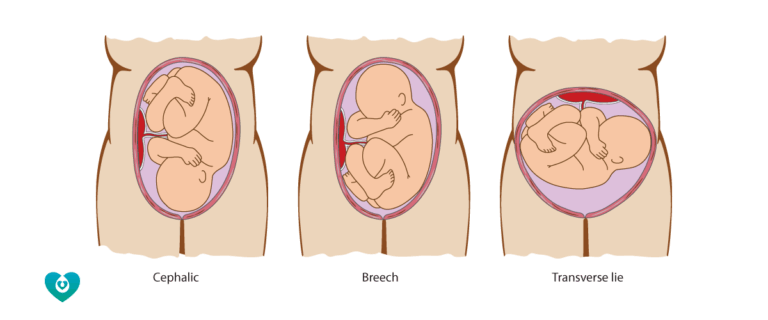Menopause is often spoken about in whispers or passed off as something to be endured. But at Acumamas, we believe it deserves more care, more clarity, and much more compassion. Menopause is not a medical problem to solve—it’s a profound transition, a natural phase in the arc of reproductive life. Like puberty, pregnancy, and postpartum, it invites us to pause and attune to the changing needs of the body.
Whether you’re already noticing shifts or simply want to prepare for what’s ahead, understanding menopause can bring a sense of agency, calm, and self-kindness to the experience.
What Is Menopause?
Menopause marks the end of menstrual cycles and is officially diagnosed after 12 consecutive months without a period. Most people reach menopause between the ages of 45 and 55, with the average age in Canada being around 51. But the changes don’t begin overnight.
The years leading up to menopause are called perimenopause, and they can last anywhere from a few months to over a decade. During this time, estrogen and progesterone—the hormones that regulate the menstrual cycle—begin to fluctuate. As these levels shift, the body may send signals in the form of symptoms, some subtle, some disruptive.
Common symptoms (and Why they happen)
No two experiences of menopause are alike. Some move through it with barely a change. For others, the physical and emotional effects can feel unrelenting. Symptoms can include:
Hot flashes or night sweats
Irregular or heavier periods
Mood changes or anxiety
Vaginal dryness or discomfort during sex
Sleep difficulties
Brain fog or forgetfulness
Joint pain or fatigue
These changes stem from declining estrogen levels, which influence not just the reproductive system but also the brain, bones, skin, and heart. Hormonal shifts can affect neurotransmitters like serotonin and dopamine, which may explain mood changes, while lowered estrogen can thin vaginal tissue and affect circulation, contributing to discomfort and sleep disruption.
Understanding that these symptoms are real—and rooted in biology—can be a powerful first step toward relief.
Supporting the transition naturally
At Acumamas, we see menopause as a call to nourish rather than suppress. Our integrative approach brings together acupuncture, naturopathic medicine, pelvic floor physiotherapy, and counseling to support this transition gently and holistically.
Acupuncture for Menopause
Acupuncture can be deeply regulating for the nervous system and hormonal rhythms. Research shows it may reduce the severity and frequency of hot flashes, improve sleep, and ease anxiety. By working with key meridians that support Kidney Yin (linked to hormonal nourishment) and Liver Qi (associated with emotional regulation), acupuncture helps restore internal balance during a time of flux.
Naturopathic support
Our naturopathic doctors often focus on adrenal health, blood sugar regulation, and inflammation reduction in menopausal care. This might involve herbal medicine, targeted supplementation, and nutritional guidance. Adaptogens like ashwagandha or rhodiola can support stress resilience, while herbs like black cohosh or red clover may ease vasomotor symptoms in certain individuals.
All treatments are carefully personalized—no two bodies, and no two hormonal journeys, are the same.
Pelvic floor and vaginal health
As estrogen declines, pelvic tissues may lose elasticity and hydration. Pelvic floor physiotherapy can help prevent or address incontinence, pain with intimacy, or sensations of heaviness. Through gentle exercises, manual therapy, and education, we help clients reconnect with their pelvic space and feel more at ease in their changing bodies.
Emotional and Mental wellness
It’s not uncommon to feel grief, irritability, or a loss of identity during perimenopause. Hormonal shifts can magnify long-standing emotions or uncover ones that have been long buried. Our counseling team provides a compassionate space to explore these changes, validate your experience, and build new tools for emotional resilience.
Preparing for Menopause early
Supporting the body in your 30s or early 40s can make the menopausal transition smoother when it arrives. We recommend:
Eating a diet rich in fibre, healthy fats, and phytoestrogens (like flaxseeds or lentils)
Prioritizing regular movement, especially strength training for bone density
Reducing alcohol and caffeine, which can intensify hot flashes and sleep issues
Focusing on restorative sleep and stress reduction techniques like acupuncture, yoga, or therapy
These strategies aren’t about controlling menopause—they’re about building reserves. Think of it as tending to the soil before the seasons change.
When to seek help
While menopause is natural, suffering through it isn’t necessary. If symptoms interfere with your daily life, or you’re unsure what’s happening in your body, reach out. Hormone testing, thyroid screening, and bone scans may be helpful tools in your care. Some people benefit from hormone replacement therapy (HRT), and our team is happy to work alongside prescribing providers to ensure your care remains cohesive and whole-person centered.
Final words
Menopause is not the end of vitality—it’s a recalibration of it. In this season of transformation, the body is asking for gentleness, attention, and respect. When we listen, when we care for ourselves in layered and loving ways, we open the door to a new kind of power—rooted not in productivity, but presence.






